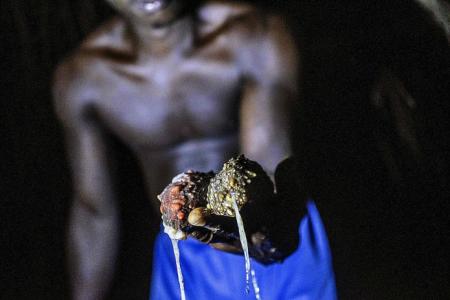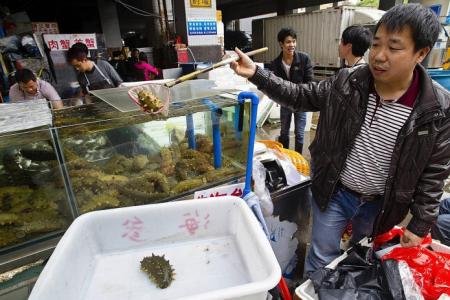Sea gold
China taps into Sierra Leone for sea cucumbers
A sea creature, considered useless in one of the world's poorest countries, is in hot demand by Chinese businessmen.
As evening falls over Sierra Leone's Banana Island archipelago, bats stream from their beachside roosts to circle in their thousands over the jungle village of Dublin.
Below them a struggle is playing out over an unexpected commodity - the lowly sea cucumber, a fleshy, sausage-shaped creature that scavenges for food on the seabed.
It is a struggle that is familiar to many in the West African country.
Sierra Leone's resources - diamonds, gold, fish and, more recently, iron ore - have been extracted and exported in great quantities throughout its history, yet the country remains one of the poorest in the world.
While the Banana Islanders have no use for sea cucumbers, in China they are prized for their medicinal properties and as a natural aphrodisiac.
Growing demand - currently estimated at around 10,000 tonnes a year - has depleted stocks around the world, leading traders to search ever further afield for new harvesting grounds.
Locals said that when the first Chinese traders arrived in Sierra Leone four years ago to harvest the island's little known, red-spined variety of Stichopus sea cucumbers, they called themselves investors.
When prices skyrocketed, the islanders hoped the windfall would make them wealthy and bring development to the village.
Mr Moses Taylor, a former village chief known as Lord Moe, recalls the visitors' promises with bitterness.
"They said they would build water pumps in the street, they said they would build street lights," he said. "They said they would build community centres. But they did nothing for us."
Added Mr Abu Bakar Kanu, a sea cucumber diver: "They just used us and dumped us like rubbish."
DEVELOPMENT PROMISES
The locals said that after it became clear the development promises were not likely to be met, they banned diving with the oxygen tanks and air-compressors that they themselves cannot afford, and called on all sea cucumber buyers to pay 200,000 Leones (S$58) to the chief before they could operate.
Local dealer Reginald McCarthy said these rules have been ignored.
"Now they come with boats and oxygen," he said. "You can't stop them."
Chinese traders running their export businesses out of Tombo village on the mainland a few kilometres away did not want to talk to Reuters about the locals' complaints.
But Mr Mohamed Bangura, who works for one exporter who asked to be identified only as Cham Jr, denied they were breaking any laws.
- Reuters.
Get The New Paper on your phone with the free TNP app. Download from the Apple App Store or Google Play Store now




